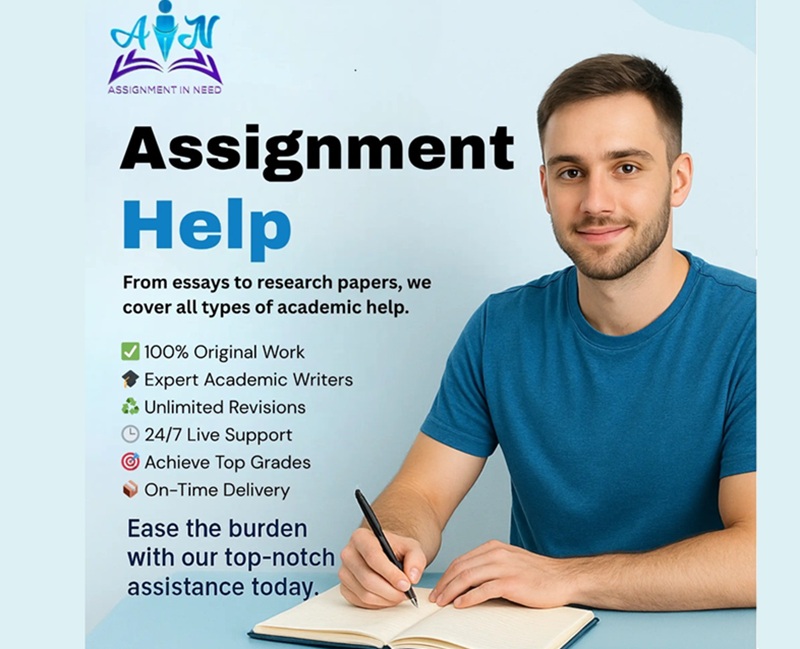When students think about Assignment help UK, their minds usually jump straight to writing – brainstorming ideas, structuring arguments, and hitting the required word count. But one stage is often underestimated: editing.
In reality, assignment editing is not just a quick skim for typos. It’s a comprehensive process that refines your work to meet academic standards, ensures clarity, and strengthens the overall quality. Skipping or rushing this stage can mean the difference between a pass and a distinction.
This article breaks down the truth about assignment editing, why it’s as crucial as writing, and how students can use it to improve academic performance.
Why Assignment Editing Deserves Equal Attention
Many students believe that if the content is “good enough” when first drafted, there’s no need for deep editing. Unfortunately, this is where grades are lost. Editing is where:
Clarity replaces confusion – complex sentences are simplified for better understanding.
Consistency is ensured – formatting, tone, and citation style stay uniform throughout.
Errors are eliminated – from grammar and punctuation to referencing mistakes.
In academic assignment help, professional editors treat the draft as raw material – valuable but unrefined. Editing is the polishing process that turns it into a high-quality submission.
The Difference Between Proofreading and Editing
One common misconception is that proofreading and editing are the same. They’re not.
Editing
Focuses on structure, coherence, and argument strength.
May involve rewriting sections for clarity.
Checks whether the assignment meets the marking criteria.
Proofreading
Concentrates on grammar, punctuation, and spelling errors.
Is the final stage before submission.
Doesn’t usually involve altering content meaning.
Tip: Both stages are necessary. Skipping editing and only proofreading means you’re only catching surface errors while deeper issues remain.
How Editing Enhances Academic Quality
Students often underestimate how much editing can improve their work.
1. Strengthens Arguments
An editor ensures each paragraph supports the central thesis. Weak or irrelevant points are cut, and evidence is positioned effectively
A well-written assignment should lead the reader from one idea to the next effortlessly. Editing restructures sentences, adjusts paragraph lengths, and removes repetition.
3. Eliminates Ambiguity
Assignments often suffer from unclear language. Editors replace vague terms with precise academic language, ensuring ideas are well communicated.
4. Meets Academic Standards
Whether it’s Harvard, APA, or MLA referencing, editing ensures compliance with formatting rules – a key grading criterion.
The Role of Editing in Different Academic Disciplines
Not all assignments are the same. Editing strategies vary depending on the subject.
Humanities and Social Sciences
- Focus on clarity of arguments and strong evidence links.
- Consistent referencing and well-developed discussions.
- STEM Subjects
- Accuracy in formulas, figures, and technical language.
- Proper formatting of charts, tables, and graphs.
Business and Management
- Logical flow in case studies and reports.
- Data presentation and consistent terminology.
- Common Editing Mistakes Students Make
- Even when students attempt editing themselves, there are pitfalls to avoid.
Rushing the process – Editing requires time and fresh perspective.
Overlooking formatting rules – Fonts, spacing, and margins count.
Ignoring feedback – Drafts should be refined based on tutor comments.
Not reading aloud – This technique catches awkward phrasing.
DIY Editing vs Professional Editing
While self-editing is a skill worth developing, professional editing offers a deeper layer of refinement.
| Self-Editing | Professional Editing |
| Cost-free | Paid service |
| Good for minor corrections | In-depth restructuring |
| Dependent on personal skill | Uses trained academic editors |
| Can miss hidden errors | Detects inconsistencies easily |
Professional assignment help services often include both editing and proofreading, combining the student’s effort with expert insight.
How to Edit Your Assignment Effectively
If hiring a professional assignment helper isn’t an option, you can still achieve strong results by following structured editing steps:
Step 1 – Take a Break
After writing, step away from the work for at least a few hours. This clears your mind and allows a fresh perspective.
Step 2 – Focus on Structure First
Check the order of sections, paragraph transitions, and logical progression of ideas.
Step 3 – Review for Clarity
Ensure each sentence communicates its intended meaning without unnecessary complexity.
Step 4 – Check Formatting
Apply correct referencing style, line spacing, and margins.
Step 5 – Proofread
Finally, scan for typos, spelling errors, and punctuation mistakes.
The Impact of Editing on Grades
A well-edited assignment:
- Appears more professional – neat presentation makes a strong first impression.
- Minimises examiner confusion – clear arguments are easier to mark positively.
- Meets more marking criteria – especially in structure, clarity, and accuracy.
Editing doesn’t just improve grades; it also improves learning retention. By re-reading and refining your work, you reinforce subject knowledge.
The Role of Writing Services in Editing Support
Some students use writing services solely for drafting assignments, but many also provide standalone editing. These online assignment help options can:
- Identify missing arguments or gaps in logic.
- Correct referencing inconsistencies.
- Provide feedback for future improvement.
A reputable Assignment help website focuses not just on “fixing” but also guiding students to understand why changes were made – a key factor in skill development.
Features of Quality Assignment Editing Services
When choosing an editing service, students should look for:
- Experienced academic editors familiar with UK university standards.
- Transparent pricing with no hidden fees.
- Confidentiality – your work stays private.
- Customised feedback – helping improve future assignments.
- Plagiarism checks to ensure originality remains intact.
Myths About Assignment Editing
Myth 1 – It’s Just Grammar Checking
Reality: Editing goes beyond grammar to improve flow, structure, and clarity.
Myth 2 – Only Weak Writers Need It
Reality: Even strong writers benefit from an outside perspective.
Myth 3 – It’s Expensive and Not Worth It
Reality: Many affordable options exist, and the grade improvement can justify the cost.
How Editing Builds Academic Skills
Beyond improving one assignment, editing teaches skills that benefit future work:
- Critical thinking – identifying weak arguments.
- Attention to detail – spotting inconsistencies.
- Time management – understanding the value of planning editing stages.
Conclusion
In academic writing, the truth is clear: editing is just as important as writing, if not more so. It turns raw ideas into polished, high-quality work ready for submission. Whether using assignment writing help, online assignment help, or refining your own drafts, editing should never be skipped.
Students aiming for top marks should treat editing as a separate, essential stage not an afterthought. For those who want expert guidance, Assignment In Need offers editing support that enhances both grades and learning skills, ensuring every submission meets its highest potential.
Ashish Gupta is an SEO Project Manager at Sterco Digitex Pvt Ltd with 12+ years of experience in Digital Marketing, Search Engine Optimization and Blogging. He specializes in technical SEO, keyword research, website audits, and organic growth strategies. Ashish has hands-on expertise with industry-leading tools including Google Search Console, Google Analytics, SEMrush, and Screaming Frog. He shares practical, experience-based SEO insights and proven strategies to help businesses improve search rankings, traffic, and online visibility.
LinkedIn: https://www.linkedin.com/in/ashishgupta90/



